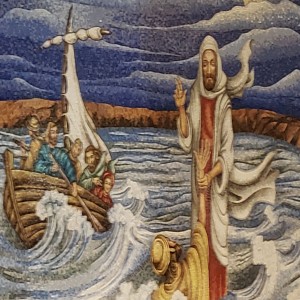I have rarely seen movies that capture that quiet, yet dramatic part of loss. Or the sense that so quickly can a space be empty of us, with only impressions of our former presence.
And in the case of the movie I watched last night that did capture it, the even more dramatic reality of how anticlimatic that moment is to the world at large.
The movie was one I had never heard of, and not likely one that anyone would rush to see, given its theme. Called "Still Life", it takes place in London and the actors are mostly none I have also never heard of, except Downton Abbey's Joanna Froggett.
John May is a particular kind of bureaucrat, one who seeks the relatives, and friends, if any, of people who die, alone, at home. He works out of a long, one window, industrial room with boxes and files. He is quiet, and clearly a man himself alone in the world, with orderly, even obsessive, habits, and a determined focus to find someone who might have cared about the deceased, and in the likely absence of anyone who cared, providing a dignified service. The service could be religious, or not, burial, or not. He takes small pieces of the person's life from the home or the apartment, and around those odds and ends, constructs a eulogy of someone he has never even met. Open a closet and see the suits, or the dresses, next to be in some thrift shop or a dumpster, the detritus of a once breathing human being.
John has done many of these searches, and each time, he has kept a photograph of the deceased person, usually pictured in some hopeful pose at a time before life hammered them and cut them off from love, or they did it to themselves thinking that they had all the time in the world, and placed it in a huge album. He goes through them from time to time, he the only person to mark the life that is gone.
Mr. May's plodding farewells to those alr eady forgotten or abandoned in life are his undoing after 22 years. There is a bureaucratic consolidation, and he is told that his newest case, of a hard drinking nearly homeless bearded man, Billy Stoke, a veteran of Grenada, who might have had a daughter, will be his last. "Wrap it up, quickly," he is told by the young manager who merely tolerates his underling bemused at efforts May has always taken, too slowly for government preferences. What makes this one poignant is that the man who died lived in John's building, just across across him, at a window John can see from his own.
Slowly, John May uncovers a history, relationships, mostly broken. Billy Stoke had two daughters. One from a relationship from which he abruptly left, without knowing he had been a father, and another, Kelly, that had begun hopefully but ended when that daughter was 18, by his own hand. He had saved one of his buddies in the war, and that man had fond feelings. Two homeless men knew him during his rough days, before the apartment, and remembered him, if not fondly, without rancor.
None of these former acquaintances, at first, show any inclination to join John at the funeral to be held, and at the grave which John, who finds himself slightly more energized about engaging life now that he has been fired and this is his last memorial, donates to the man. His opening himself up a little to Kelly, Stokes' daughter, has the two of them, she also a lonely soul in animal services, in the first moments of a possible relationship. She decides to go to the service, and so meets up with him to discuss the final details, and is touched by his rigid, but definite tenderness toward her father. They agree to have "tea" after the service and they shyly wave goodbye as her train door closes. Things are looking up for John and Kelly.
As he comes out of a store having bought two mugs each with a picture of a dog, a homage to the young woman who seems perhaps interested in him, he crosses the street----and is hit and killed by a bus. Death can come at any time, and there is no human power to stop it.
One can now imagine why this is not a very popular movie. There will be no happy ending. Well, there will be no happy ending of the sort that we are told to crave and for the lack of which we see our lives as failure.
On the day of her father's funeral, Mr. Stokes' daughter is at the grave of her father, along with the several people John May had located so that Mr. Stokes would not be another man whose was buried without mourners. Another service has just been held, with only a priest in uncomfortable attendance. A car takes the casket to the weedy part of the cemetery, passing those gathered at the grave of Mr. Stokes. His daughter sees it but she is looking for Mr. May who was supposed to be among them. Of course he is. He is the one being buried up the hill. She has found a family and healing through a man who dies and is buried without fanfare. She will never likely know.
The reviewers found the ending rather treacly. Me? It gave me hope. There does come a gathered crowd around May's mound, the people whom he tended to when no one else did, the spirits of men and women who know that John May's life was worthwhile, though not remembered by the world.
I suppose, even if one doesn't believe in an afterlife, as so many of us do not, it still is hopeful, because lives in the here and now have been altered for the good, by this John May, an Everyman.




